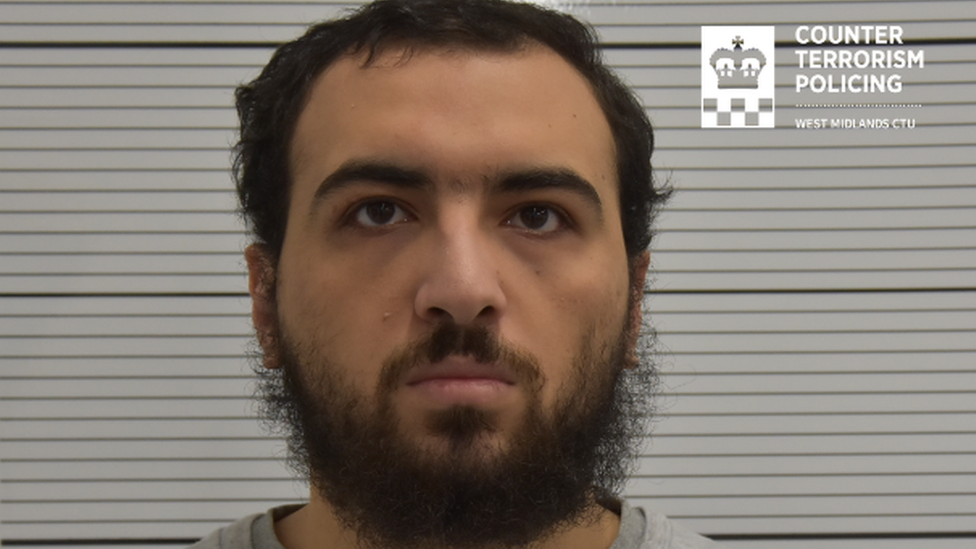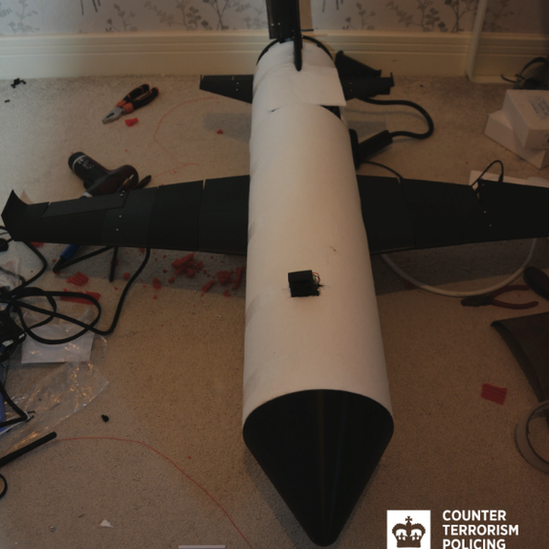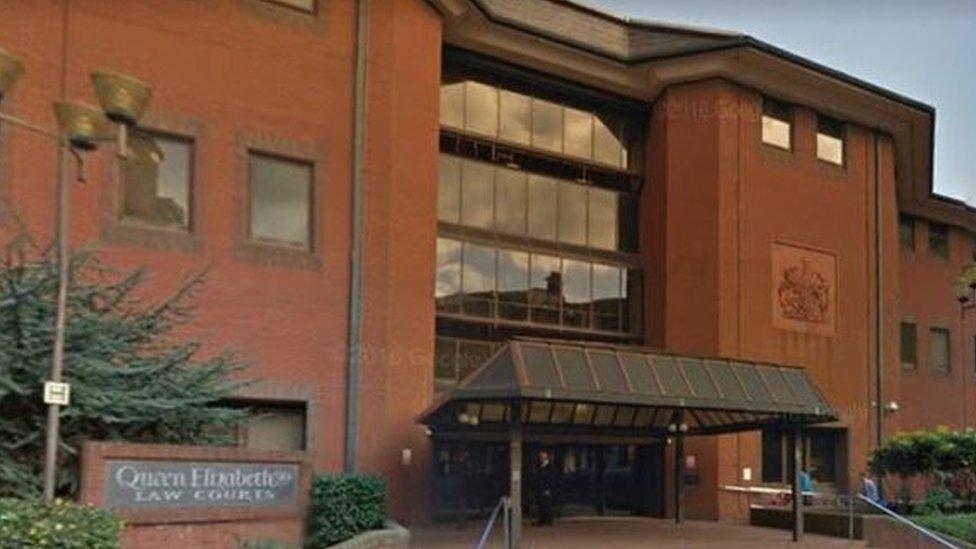Coventry student guilty of making IS chemical weapon drone
- Published

Conversations on Mohamad Al-Bared's devices demonstrated his support for IS, police said
A PhD student has been convicted of designing and building a drone for terror group Islamic State (IS) that was capable of delivering a bomb.
Mohamad Al-Bared denied supporting IS after the device was found in a bedroom at his Coventry home along with a 3D printer capable of making parts for it.
Prosecutors alleged it would deliver a chemical weapon or some other kind of device in IS enemy territory.
Al-Bared denied a charge of engaging in conduct in preparation for terrorism.
Jurors at Birmingham Crown Court were told the mechanical engineering graduate was arrested at the same time a raid was carried out at the home he shared with his parents.
Officers seized several devices and also found an IS application form which Al-Bared, 27, denied filling in.
Prosecutor Michelle Heeley KC told the court the idea for the drone was "somewhat inspired by the design of the Tomahawk missile" based on material recovered from his electronic devices.
The material included references to fuses, mechanical detonators and an "explosive" head, she said.
The drone, shown to jurors, also had a landing gear and a small digital camera.

Counter terrorism police recovered the drone which they said was able to carry explosives or chemicals to be used as a weapon in a war zone
Al-Bared, who was studying at Birmingham University and specialising in laser-drilling, said he had no plans to assist IS and had made a drone for his own research purposes.
He also said he had researched IS to argue against its aims with others at a mosque.
But the prosecution said it was clear from encrypted online chats and other digital material that he supported IS and he intended to make a "single-use", video-transmitting, fixed-wing drone for terrorist purposes, and to travel to Africa via Turkey.
His conviction centred on preparations in January last year.
Judge Paul Farrer KC told Al-Bared that he had been convicted of an offence of "the utmost gravity" and a long prison sentence was "the inevitable consequence" when he was next before the court on 27 November.
West Midlands counter terrorism police said Al-Bared had worked out how to get the drone into a war zone without being stopped by authorities and had set up a spoof company so he could pretend to be travelling on business.
Det Ch Supt Mark Payne, head of the West Midlands unit, said: "Al-Bared was a calculated individual and coupled with his education and expertise in mechanical and chemical engineering he was clearly very dangerous.
"He has made a purpose-built drone able to carry explosives or chemicals to be used as a weapon in a war zone.
"Thankfully he was unable to continue his efforts following his swift arrest earlier this year."

Follow BBC West Midlands on Facebook, external, Twitter, external and Instagram, external. Send your story ideas to: newsonline.westmidlands@bbc.co.uk, external
Related topics
- Published23 August 2023
